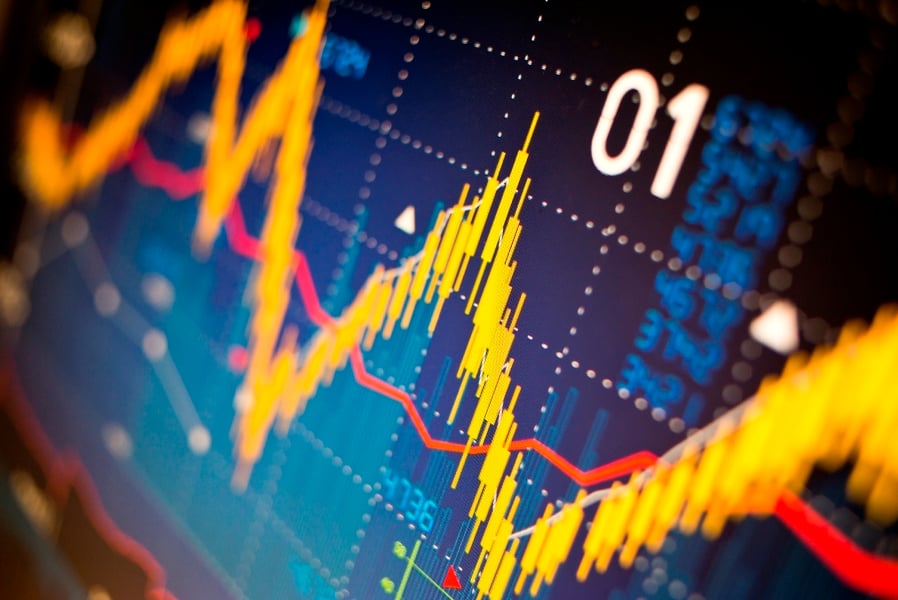Financial markets buckled after China escalated the trade war with the U.S., sending American stocks careening toward the biggest drop of the year and sparking a rally in global bonds.
More than $700 billion were wiped from the value of U.S. equities on Monday, with the S&P 500 Index plunging 3% and all but 11 companies in the gauge trading lower.
Losses in the Dow Jones Industrial Average surpassed 700 points as Apple and IBM slid at least 4%. The Cboe Volatility Index surged about 40%.
The 10-year Treasury yield dropped to the lowest since before President Donald J. Trump's election. China's yuan sank beyond 7 per dollar, a move that suggests the level is no longer a line in the sand for policy makers in Beijing. Oil slid.
Equity losses accelerated after China let the yuan tumble to its weakest level in more than a decade and asked state purchasers to halt imports of American agricultural products.
Investors are starting to grasp the potential for a protracted conflict between the world's two largest economies, with a Treasury-market recession indicator hitting the highest alert since 2007.
(More:
Wall Street reactions to China trade escalation marked by fear, uncertainty)
As demand for haven assets spiked,
gold made a run toward $1,500 an ounce and the Japanese yen extended its rally. Major cryptocurrencies, increasingly seen as a refuge during distressed times, climbed as Bitcoin approached $12,000.
"The trade war is now intensifying and it's possible that a currency war will start as well," said Chris Zaccarelli, chief investment officer for Independent Advisor Alliance. "Neither is good for the global economy and both will hurt equity markets."
People's Bank of China Governor Yi Gang said the nation won't use exchange rates as a tool in the escalating trade dispute with the U.S.
(More:
Recession indicator pushed to highest alert since 2007)
Yet for President Trump, the latest decline in the yuan is "called 'currency manipulation." The American leader also indicated he'd like the Federal Reserve to act to counter the Chinese action. Swaps show bets the central bank will ease by 100 basis points by December 2020, a quarter point more than what was priced in after last week's cut.
The trade war has been a consistent catalyst for market volatility and hopes of a resolution are now being sent even further out in the horizon, according to Mike Loewengart, vice president of investment strategy at E*Trade Financial Corp.
While that could continue to challenge portfolios, investors should not make the mistake of trying to time the markets amid the sell-off, he said.
"This too shall eventually pass, and bouts of volatility in recent months have shown this can happen quickly," said Mr. Loewengart.







